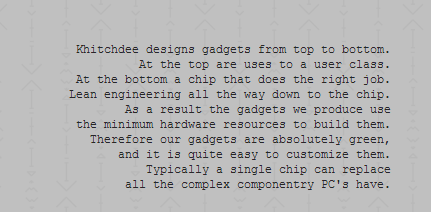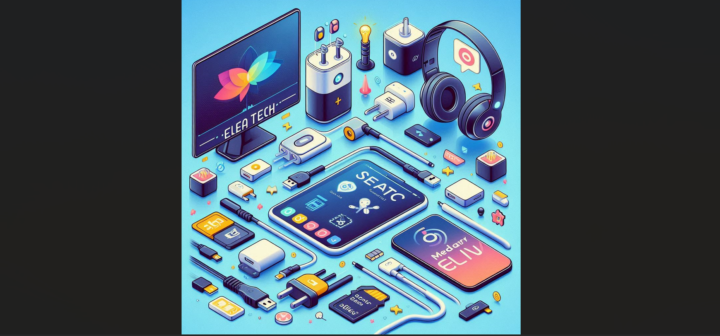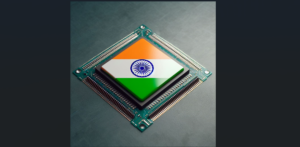1. When did you start Khitchdee and why did you feel the need for it?
We originally started in 1999 as Khitchdee Music Inc, a company based out of Portland, OR, USA, building software to teach Indian Classical Music; worked on it on and off between 1999 and 2009. I have been devoted to it full time since 2009, this time as an Indian company Khitchdee Technologies Pvt. Ltd. registered in 2012.
I am from Allahabad. When I returned to Allahabad after studying and working abroad, I found the only jobs available to me locally were teaching. I started Khitchdee to address this void.
2. The name is interesting. How did you come up with that?
Most Indians have heard of Khitchdee and probably tasted it at least a few times. So its got good registration. Also, it represents a dish that is simple to put together and easy to digest. I liked the simplicity aspect as I wanted our technology to be equally simple. I wanted to juxtapose simple, Indian and technology.
3. What are the products that you are currently working on?
We are a computing gadget maker. We make hardware – gadgets such as PCs, tablets and smartphones. This is our long term vision. Currently we are working on a software app that serves as an intelligent software agent to assist us in designing gadgets. We called it Inck.exe. It’s an integrated PC based gadget design tool that integrates high level user interface design, cloud based middleware and low level GDSII chip layout design.
4. What do you think is the current situation with gadget development in India?
A few big companies such as HCL build PCs. I guess they mostly put them together based on imported off-the-shelf parts. There’s not a lot of original design in them to differentiate from their competitors. They mostly compete on cost — lean engineering. The same is true of a flurry of smaller companies that are building tablets. Aakash by Datawind and Adam by Notion Ink are some examples. These are also lean engineered from off-the-shelf imported parts. A common theme is lean engineering since we are in a cost sensitive market. But the approach is low tech since they are mostly using off-the-shelf-parts. Khitchdee steps in and takes lean engineering to a whole new level. We build our own parts — the chips that go into our gadgets and all the other circuits. This takes us longer but its far more sustainable in the long run. We’re doing this in Allahabad so its adding a new dimension to Allahabad’s rarefied techscape. Most of the other players are based in Bangalore.
5. We have a lot of engineering colleges in the country. What can more teachers and professors do to help students be more creative and work on innovative products?
I think there needs to be a lot more collaboration between industry and academia. For example, if the gadget manufacturers opened their design processes to students, it would benefit the students greatly. At the same time, the professors need to reach out to the gadget manufacturers and invite them for talks etc. Our industry is not truly high tech whereas our academia is at the cutting edge. This difference needs to be bridged somehow. Also, there needs to be a holistic course on gadget design. Currently there are courses on chip design and computer architecture but nothing along these lines. Academia is slow to change. Khitchdee plans to play an active role in teaching students our new methods and getting them to contribute to our design expertise. This will give them confidence in being able to build truly useful technology.
6. How is it working in Allahabad? Do you think a more startup oriented city like Bangalore can do more justice to you?
Allahabad is a great place to run a high-tech company for the following reasons:
A. Good intellectual atmosphere. Laid back lifestyle.
B. Less traffic. Lower rent, cost of living.
C. Off the beaten track location stimulates out of the box thinking.
D. We’re one of a handful of high-tech companies here. Great visibility.
Bangalore is too crowded and for a truly high-tech company working on original engineering, Allahabad offers enough intellectual stimulation.
7. What are your short-term and long-term plans and how do you think of achieving them.
Our long term plan is to popularize Use-Centric design, our new approach to designing gadgets use-centered (top-down) rather than bottom-up (starting from the microprocessor) as has been done in the past. We want to popularize this method in India where there is a greater need for technology solutions that fit right and are lean engineered and therefore as cheap as possible. We plan to achieve this long term goal in four stages:
Stage 1: Build Inck.exe, a Windows app to design gadgets using Use-centric design and popularize its usage amongst EE/CS students. Using Inck.exe, students will be able to work on all aspects of designing a gadget including its use scenarios and interface protocol at the the top, any middleware to realize the computational needs of the gadget through the cloud and the GDSII layout of the chip that will run the gadget at the bottom.
Stage 2: Use Inck.exe to build our first gadget, The Switch, which will enable students to build gadgets standalone without any need of a PC. The Switch will have all the functionality of Inck.exe plus it will have an attached breadboard to test chips and circuits designed using it, and a built-in oscilloscope.
Stage 3: Students will use The Switch to design custom gadgets for themselves to replace their laptops. Later they will design PCs for their non-EE/CS fellow students.
Stage 4: We will design gadgets for the public by franchising our gadget development process to franchisees. Franchisees will use the Switch to design gadgets for their clients and we will get them fabricated. We would have simplified the gadget design process so much by this point that someone with a basic familiarity with PCs will be able to use our gadgets to design gadgets for clients.
About The Founder
Rohit Agarwal is an Electrical Engineer From IIT Kanpur. He went on to do his Masters from University of California, Irvine and then worked as Senior Software Engineer at Intel Corporation, Hillsboro, OR, USA. Currently, he is Assistant Professor at IIIT Allahabad. He has 17 US patents to his name and has interests in music, teaching, algorithms and systems.
Well, I am an electronics engineer myself and I understand the need for something like this. I understand that, if executed well, it will benefit the students, the industry and the consumers as well. We, at TheTechPanda, highly acknowledge initiatives like Khitchdee and we wish them loads of success.












